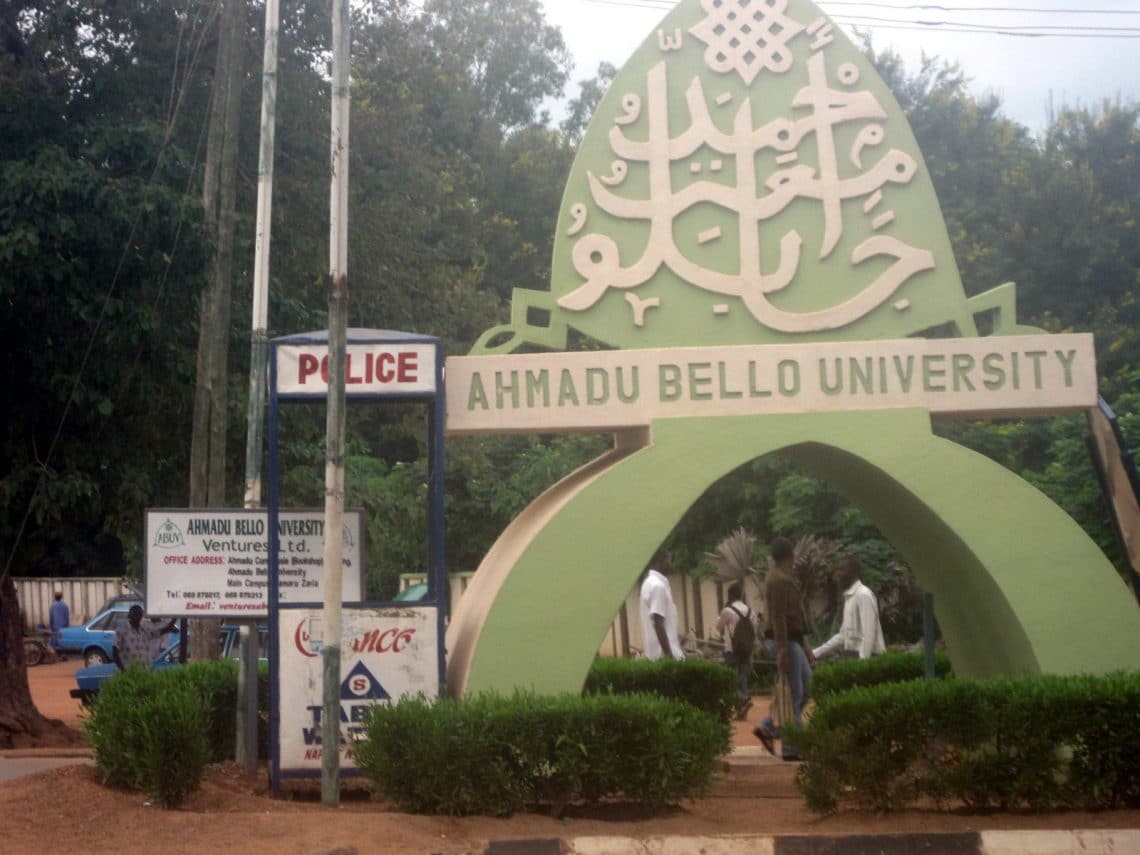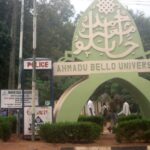If you’d told me in 1992 that by 2022, Ahmadu Bello University (ABU) had be financially broke, poorly ranked among its peers, having eroded academic culture, ineffective teaching/learning and nonchalant stakeholders, I had had shuddered and looked at you straight in the eye and said ‘no way’. Not only that, I had sought for you, a refuge from God against the satanic whispers.
Unfortunately, today, we are witnessing never-before-seen challenges and embarrassments for whoever cares about Ahmadu Bello University (ABU) as an institution. There is no Satan to blame! We should all work together to address this precarious situation. Here are my three questions and answers for greater ABU.
How do we improve ABU’s web visibility and ranking? There are companies and organisations that offer Higher Education ranking services. The Times Higher Education (THE) and Webometrics are two examples. Ranking is based on clear criteria and students, parents, alumni and other stakeholders accept it as a reliable means of comparison among so diverse institutions, from different climes, cultures and economic realities. ABU may focus on Webometrics ranking – mainly based on Web Visibility; which in a short-term is easier to improve.
(i) To improve web visibility, lecturers should change from the traditional ‘lectures and memorization’ to modern approach based on ‘Internet-enabled learning’ through open-sourcing. This means that our students will gradually rely (less on teachers and) more on teaching resources available on the university website – course manuals, tutorials, lecture videos, CBT, etc.
- Nigeria re-elected into global aviation organisation board
- Nigerian internet sensations and where they are now
(ii) To deepen web visibility, there should be IT-resources for feedback (students to teachers) and P2P-learning (or peer-to-peer interactions, so that students could post messages to each other). This increases traffic to the website. In addition, if the resources are opened, many others interested will visit the sites. ABU has a relative advantage in terms of the number of theses, books, etc. These should be digitized and opened. High number of visitors viewing active linkage means high web visibility.
(iii) In a long-term, we may gradually improve other important areas – (i) Teaching (the learning environment), (ii) Research (volume, income, and reputation), (iii) Citation (research influence), (iv) International outlook (staff, students, research) and (v) Industry income (knowledge transfer). These are part of indicators for the Times Higher Education (THE) ranking that put University of Ibadan as the best in Nigeria and number 436 in the world, in 2022. ABU is not among the top 10 in Nigeria!
How do we motivate lecturers to achieve their key-performance-indicators (KPIs) for better ranking? ABU is blessed with a large workforce. But, like any other resource, the human capital must be optimized, right-sized, trained and empowered for it to be effective. As Nigeria experiences the ‘oil curse’, ABU seems to be entangled in ‘manpower curse’. Despite its size, on average, it has failed to show better academic performance than less endowed or smaller universities. For example, the university lacks manpower in important modern emerging areas such as ICT, Renewable Energy, Sustainable management practices and competency-based education and seems to have excess in other areas such as semi-skilled administrative and support services. In these areas, the university hired more than it needed in a Soviet-style form of social welfare.
There is also the challenge of aging staff and no clear plan for replacement or retraining. For example, in my department, there are eighteen professors and eleven readers and not a single-entry level academic staff. In a 70-years-retiring-age-and-34-years-old-promotion-guidelines academic institution, soon every staff would be on a professorial cadre. As you know, the university academic system is based on a Master-Apprentice model. It is simple. As a master (or a professor), you develop others, and as an apprentice (staff-in-training or postgraduate student), you learn from your supervisors and mentors. The system collapses, when the mentors are more than the mentees. There is a simple solution. The university should carefully develop a policy on impactful KPIs for all staff in the academic, research and administrative units and enforce it. By definition, promotion exercise should be based on some objective performance indicators. Impactful KPIs will lead to better ranking based on founding fathers’ dreams. It is true that implementing KPI policy requires robust financial resources. As former British statistician Claus Moser said, “Education cost money, but then so does ignorance”. The higher the quality, the more the cost. Impactful KPIs will lead to better and more efficient outcome-based teaching/learning experiences.
How do we improve the university’s finances? In my view, there are two short-term means of expanding the university’s IGR. My understanding is that, the current biggest sources of revenue for ABU are the School of Postgraduate Studies (SPGS) and Distance Learning Center (DLC). As they teach in business schools, to increase profit; you either increase revenue or decrease costs. Let me focus on the DLC. It is clear that we cannot sustainably improve teaching/learning, finances and university ranking using our current conventional education model. It is too costly, cumbersome and archaic. Recently, one of the great achievements of ABU is the creation of the DLC. The model has been tested and trusted and should be adopted for the entire degree programs at ABU. Currently, DLC serves only students residing some distance from ABU campus. This is unnecessary. Since the degrees are equivalent, their constituent courses should be equalized. So, any conventional student can take any DLC course in place of an equivalent conventional course. This will help to debottleneck our academic processes. Specifically, we can ask all programmes to develop a blended-learning policy based on NUC guidelines. We can also ask all 100- and 200-level students to take some or all courses under the DLC model and pay some charges. This will increase revenues and the empty or decongested classes will decrease operating costs. In fact, the distance/conventional equivalency can be extended to other universities. ABU could sign MOUs with other institutions to make its individual courses available to their students. We will have ABU’s quality available everywhere and for anyone who could pay.
As you can see, I have attempted to look at the current situation at ABU through three questions and the limited answers I proffered. These questions are based on the university’s mission that promises to to break new grounds in research and teaching and enhance capacity-building to meet the challenges of the university catchment area and rest of the world. The founders had very ambitious targets! Maybe, you have more insightful questions and more practical answers to address the contemporary challenges facing the university and its catchment area. Please, let us share views and change the conversations. It is possible to have a great ABU – prosperous, respected, highly-ranked and fulfilling the dreams of its founding fathers and meeting the expectations of its alumni. My three answers may be a starting point; but there are many ways to help the university and the Alumni Association may lead the way. It may work with the university’s Directorate of Academic Planning and Monitoring (DAPM) to set a purposeful plan, implement phases and monitor milestones for greater ABU. Let me leave you with a beautiful saying from the Roman Philosopher Lucius Sereca, “It is not because things are difficult that we do not dare, it is because we do not dare that they are difficult”. If we declare to have a great ABU by 2025; it will take three years of hard work, but the dream will be a reality.
Baba El-Yakubu is PTDF-Chair Professor at Chemical Engineering Department, ABU

 Join Daily Trust WhatsApp Community For Quick Access To News and Happenings Around You.
Join Daily Trust WhatsApp Community For Quick Access To News and Happenings Around You.


